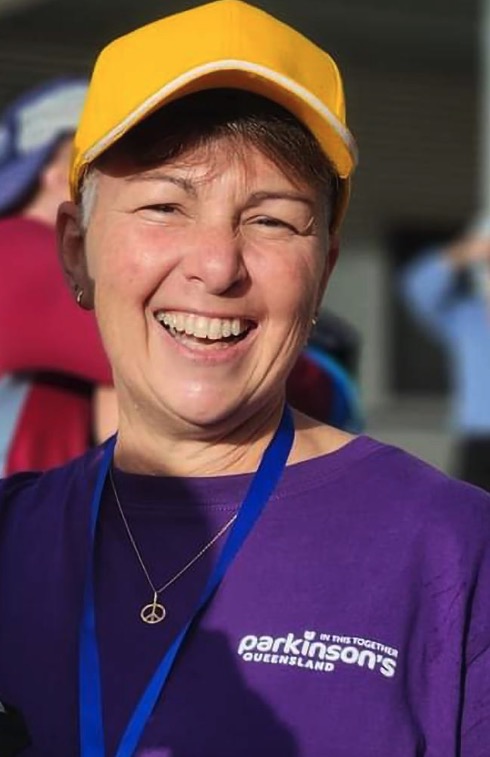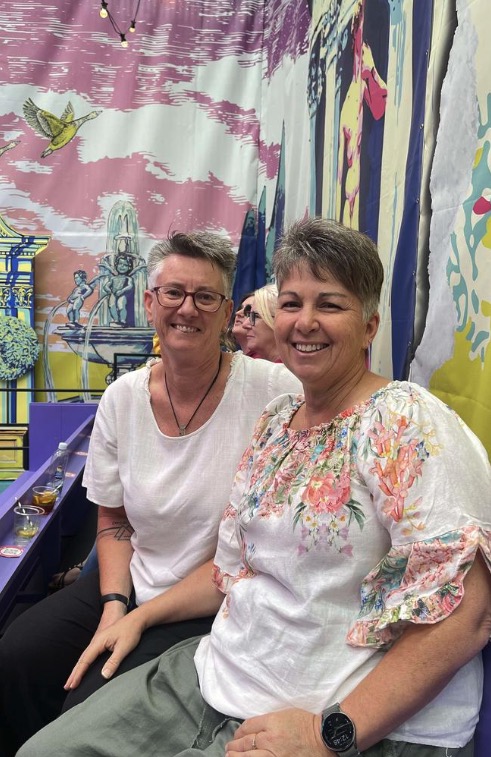A grim message has been issued as experts scramble to tackle the world’s fastest-growing disease.
A new study aimed at understanding the genetics of Parkinson’s has been hampered by the need for 7,000 Australians with no family ties to the disease to provide a saliva sample to “crack the code” on Parkinson’s.
The degenerative neurological condition affects memory, thinking and movement and is the fastest growing neurological condition in the world.
People with Parkinson’s are also likely to develop dementia, a brain condition that affects memory, speech, thinking and behaviour.
Dementia is the second leading cause of death in Australia.
Kristine Maiorana was diagnosed with Parkinson’s when she was just 53 years old after she started smelling cigarette smoke all day and experiencing stiffness.
“My right side is all affected, so my right leg was bending — it was affecting my gait,” Maiorana said.

She said even simple tasks like using a computer mouse were becoming difficult “because she didn’t have the strength in (her) fingers to use the buttons.”
Diagnosed in June 2023, Maiorana said she went through a period of denial before coming to terms with the condition.
“There are so many different emotions that you go through with it all, and then there’s the comfort of everyone around you,” she said.
“Devastating news” I’ve been told many times.
She said her days were filled with appointments to help manage the disease while working full-time doing data management for the government.
“They say Parkinson’s is a full-time job, and it is,” she said.
“I start work at 7 o’clock, I finish at 3:30 p.m. so I can go to pilates, to physiotherapy. I have speech therapy, there is a pediatrician, a psychologist – it just seems like you have to do these things after hours.
“And if you don’t do them, then you fall in a heap.”
Maiorana said participating in the Parkinson’s Queensland-based Young Onset Support Group has been a huge comfort throughout the process, allowing her to form “instrumental” friendships.
“You feel so alone at the time because you don’t understand – you think it’s just you,” she said.
“You don’t know what to do, how to think, you start going down – how am I going to survive?”
“Just having people around you who are the same age, the same struggle, and knowing what they’ve done financially, mentally, what direction they’ve taken, it helps a lot.”

Another source of comfort has been her partner, Kim, whom she met six months before she was diagnosed with Parkinson’s.
“I told her ‘you can go now, you can leave, it’s not for everyone and we don’t know what’s going to be down the road,’ and she’s still here,” Maiorana said.
“She’s addictive and we’re a force to be reckoned with when we’re together, she’s the best thing that ever happened.”
Maiorana is taking Sifrol to treat her Parkinson’s, which she said seems to be working well for now.
“I’m in a really good place right now — I think I’m in control of my body,” she said.
However, Maiorana urged people to take part in the Australian Parkinson’s Genetic Study (APGS), which has already collected samples from more than 10,000 people living with Parkinson’s but needs a “control group”.
“I think a lot of people don’t know about it until it’s right there in front of them, then they think it’s a life-ending thing where it’s not,” she said.
“You live with it, you die with it.
“But if people can spit, it’s quite easy – you spit into a tube.”
APGS is funded by Shake It Up Australia and the Michael J. Fox Foundation for Parkinson’s Research.
Understanding the genetics of the disease can help pave the way for new treatments and even a possible cure.
Shake It Up chief executive Vicki Miller said the study had already identified a new gene that researchers were unaware contributed to Parkinson’s disease.
“Part of the healthy study group is to give (researchers) reference groups to compare to, so that’s really, really important and valuable information for researchers,” Miller said.
She said the study was a great opportunity for people who had a loved one with Parkinson’s to get involved.
“(You) fill out a questionnaire and they’ll mail you a saliva test,” Miller said.
“You take the saliva test, post it back, and that’s all you have to do to participate in the study.”
Participants must be age 45 or older and not have a family history of Parkinson’s.
People can sign up through the Shake It Up Australia website.
#Easy #treat #worlds #growing #disease #fasting
Image Source : nypost.com